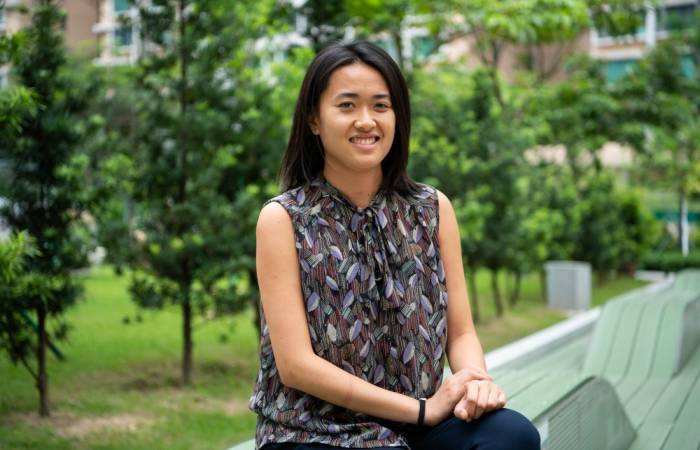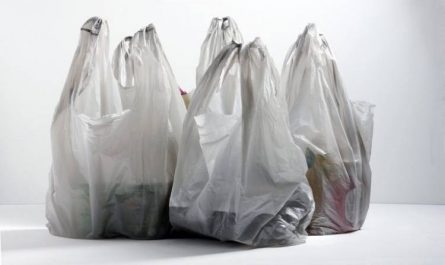Local eco-activist Annie Lao Ka Weng said the upcoming implementation of a plastic carrier bag charge was not an efficient way to reduce plastic use during her talk on plastic pollution at Ponte 9 in the Inner Harbour area last week, urging the government to impose restrictions on disposable plastic.
The Legislative Assembly (AL) this month passed a government-initiated bill on the implementation of a plastic carrier bag charge scheme for retail businesses in Macau.
Macau’s anti-plastic bag law will take effect on November 18, and one pataca will be charged per bag. Shops providing customers with free plastic carrier bags will be fined 1,000 patacas for each bag they provide.
Lao, a local citizen who has been studying and working in Australia and returned to Macau in 2015, said she felt frustrated about the city’s low environmental awareness and its insufficient environmental protection facilities, so she started collecting signatures for her online petition in August last year urging the government to restrict single-use plastics by proposing legislation on the matter.
“Our neighbouring cities have been charging for plastic carrier bags for a few years, however, many people still use a lot. People are used to using single-use plastics nowadays because of the convenience, such as Styrofoam lunch boxes. I think waste minimisation through source reduction and reusable items is very important. Moreover, most local people don’t use second-hand items and the city lacks a proper secondhand market,” Lao said.
EU to ban disposable plastic by 2021
In an attempt to reduce plastic waste, Lao said she was advocating for official restrictions on single-use plastics by petitioning the government, adding that the European Parliament (EP) has already passed a ban on disposable plastic by 2021. Moreover, many single-use products nowadays could be replaced by compostable cornstarch products, Lao noted.
“I hope to enhance local people’s awareness of plastic pollution by organising talks and activities, and at the same time a group of volunteers is working in the community to collect plastic that can be recycled in various residential areas and clean up the coast of Coloane every month,” Lao noted.
Lao also pointed out that as Macau is a tourist destination, its visitors leave the city with tonnes of trash, adding that according to the Environmental Protection Bureau (DSPA), the amount of solid waste has been on an upward trend since 2008.
“Macau, with a population of over 650,000, each person produces, on average, 2.17 kilogrammes of solid waste every day. It is much more than in our neighbouring regions like Singapore, Hong Kong and Guangzhou,” Lao said.
“The biggest part of the solid waste is kitchen waste, accounting for 40 per cent while plastic waste accounts for 22.5 per cent. However, only 0.2 per cent of plastic rubbish can be recycled, because many recycling companies are reluctant to receive plastic waste and our government prefers waste incineration instead of recycling,” Lao said.
‘Over-packaged’
Moreover, Lao pointed out that many fruits and vegetables sold in local supermarkets are over-packaged with cling film, which created tonnes of plastic rubbish. “Some dead fish were found full of plastic materials in their stomachs. What I’ve learnt from the National Geographic Magazine is that the marine trash will be much more than the number of fish in the sea by 2050… When we are eating seafood, we are also eating plastic particles,” Lao underlined.
Lao suggested that people dine out instead of buying takeaways and also bring their own refillable water bottles with the aim of reducing plastic waste. “I understand that everyone will feel inconvenienced at the beginning. However, many eco-experts say a habit can be formed if you do the same thing for 30 days,” Lao noted.
According to the Macau Post Daily, Lao said that local people’s low eco-awareness still needed time to improve, as it was common to see recycling bins in different areas full of unrecyclable trash.



